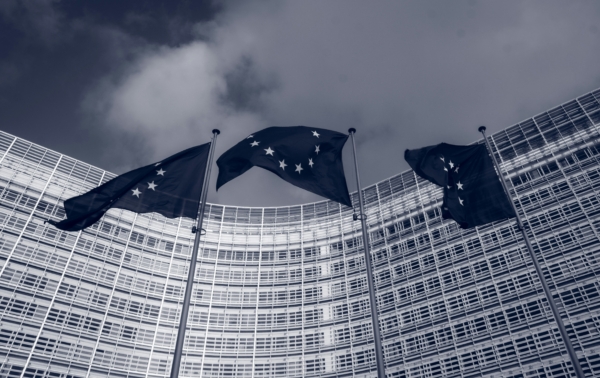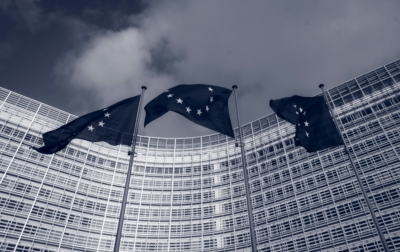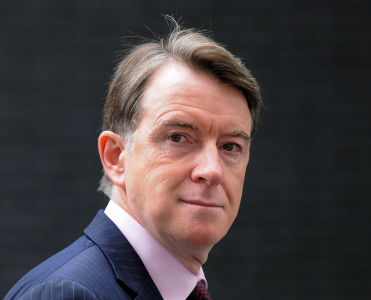The EU’s Economic and Monetary Union (EMU) will undergo major reform in coming years. Transparency International EU has just launched a new project to look into the transparency and accountability of Eurozone economic governance
The euro crisis forced a series of hurried reforms and created ad-hoc institutions. There is a blurred division of competences between Member States which results in budget rules that are too complicated even for hardened experts. This muddies the decision-making process and confuses where the accountability for decisions lies.
At Transparency International EU we believe in the need for democratic accountability of the institutions which govern us. Be that political institutions such as the European Parliament, European Commission and the Council of Ministers or economic governance bodies, such as the European Central Bank.
Transparency, accountability and integrity are vital to ensure that economic governance works for us all and not just for the most powerful countries, or vested interests through collusion or even corruption. Civil society, academics, citizens and the media need to be able to monitor how the decisions which affect us all are made.
That’s why we have launched a project on Eurozone governance to accompany the EU’s efforts to design an economically sustainable and democratically legitimate euro. We have to make sure that democratic accountability is more than just an afterthought.
Upcoming reforms
In the first year of his Commission presidency Jean-Claude Juncker presented a roadmap for Economic and Monetary Union (EMU) reform, stating that he aims to make Eurozone governance “more socially fair and democratically legitimate”. The “Five Presidents’ Report”, which Juncker’s team co-authored with the heads of the other Eurozone governance institutions, includes a full chapter on “Political Union” which attempts to address the flaws in the democratic accountability of Eurozone governance.
The ideas presented there are too vague and long-term: the European Parliament will only be able to have non-binding opinions and national parliaments are encouraged to take “ownership” without actually contributing anything. Democratic accountability is not just a nicety, it is a prerequisite of good governance. The way decisions are taken matters, not just their outcome.
What we will do
Starting in October 2016 we will publish a series of studies setting out in detail the transparency of the EU’s economic governance institutions; their accountability, their democratic legitimacy, as well as their integrity. We will look at institutions’ independence, their proactive dissemination of information and access to document policies, integrity mechanisms (such as whistleblower protections, codes of conduct for staff, revolving doors), and publish in-depths case studies of recent decision-making procedures.
These studies will form the evidence base for a broader advocacy effort. To gain support for a democratic Eurozone, we will organise report launch events and roundtable discussions seeking to narrow down the conclusions of the studies into concrete recommendations together with fellow civil society actors.
We aim to finalise this phase in time for the Commission’s white paper on EMU reform in spring 2017, but will continue to monitor the developments.
Want to be involved? Don’t hesitate to contact our research & advocacy coordinator at leo.hoffmann-axthelm@transparency.org or +32 (0)2 893 24 63.
Target institutions
| European Central Bank | European Investment Bank | European Stability Mechanism | Eurogroup |
| The ECB is one of the most independent central banks in the world, posing challenges to its accountability. It plays a difficult role as part of the Troika or Quadriga, given that it is responsible for the monetary policy of the programme country; and has at times put considerable pressure on sovereign governments. Finally, it is also responsible for the supervision of the largest banks in the euro area, which may present new challenges to its independence. | The EIB is the largest multilateral lender in the world, and the oldest of the institutions under scrutiny. Its investment decisions routinely impact people’s lives, necessitating strong mechanisms by which to hold its decision-making bodies to account. We will analyse these along with transparency policies and complaint mechanisms, especially in view of its new role as the vehicle for the EU’s investment plan, the European Fund for Strategic Investments. | The ESM was set up outside of the EU’s treaty framework, which presents a number of problems: the EU staff regulation and access to documents regulation do not apply, and only governments can bring disputes before the European Court of Justice. Given that it can lend up to 500 bn EUR on behalf of Eurozone tax-payers, it is all the more important for us to scrutinise transparency and accountability mechanisms in place at the ESM, and make recommendations for the future. | The Eurogroup is an informal body with limited transparency and unclear rules of procedure, making it extremely difficult to hold it to account. Throughout the crisis, very important decisions were taken by the Eurogroup, even though its accountability mechanisms are those of a merely “consultative body”. Can we really hold finance ministers responsible for the Eurogroup’s actions if we do not know how they were peer-pressured into certain decisions? |
Advisory Group
To make sure that the evidence supporting our advocacy work is as good as it can be, we have set up the TI EU economic governance advisory group. The group includes subject experts in the field, who will provide diverse expertise on the Eurozone economic governance.
In its first meeting in April 2016, the advisory group discussed ways to involve other civil society actors to form an advocacy coalition towards greater transparency and accountability of the Eurozone institutions. The group also discussed the structure of the project and potential methodology with our research team.
| Advisory Group Members | Affiliation | |
| Berend van Baak | Former Deputy Director-General of Human Resources, European Central Bank (Frankfurt) | |
| Michele Chang | Professor of European Political Economy, College of Europe (Bruges) | |
| Rémy Jacob | Former Director-General of the Strategy and Corporate Centre, European Investment Bank (Luxemburg) | |
| Philippe Legrain | Former economic adviser to the President of the European Commission and senior visiting fellow at the LSE European Institute (London) | |
| Nicolas Véron | Senior fellow at Bruegel (Brussels) and visiting fellow at the Peterson Institute for International Economics (Washington, DC) | |
| Research team | Affiliation | |
| Leonard Seabrooke | Professor of International Political Economy, Department of Business and Politics, Copenhagen Business School | |
| Cornel Ban | Assistant Professor, Boston University / European University Institute (Florence) | |
| Benjamin Braun | Postdoctoral Fellow, Max Planck Institute for the Study of Societies (Cologne) | |
| Martin B. Carstensen | Assistant Professor, Department of Business and Politics, Copenhagen Business School | |







